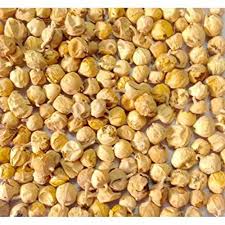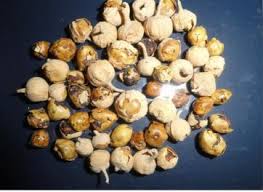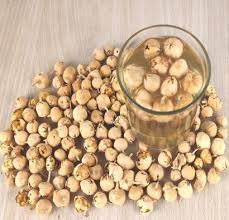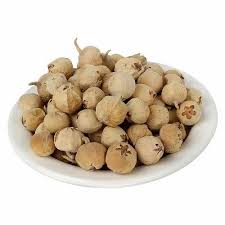
The Best Ayurvedic Remedies for Seasonal Allergies
At Dirghaanshi, we believe that Ayurveda offers holistic solutions for a wide range of health concerns, including seasonal allergies. As nature changes with the seasons, many individuals experience uncomfortable symptoms like sneezing, nasal congestion, itchy eyes, and sinus pressure. Instead of relying on over-the-counter medications, Ayurvedic remedies offer natural, effective options to manage and alleviate these symptoms. Discover how Ayurveda can help you build resilience against seasonal allergies and promote overall well-being through safe, natural solutions.
The Best Ayurvedic Remedies for Seasonal Allergies
Seasonal allergies, also known as hay fever or allergic rhinitis, are common during the spring and fall months when pollen levels rise. Symptoms include sneezing, watery eyes, nasal congestion, and headaches. Although many people turn to conventional treatments like antihistamines and nasal sprays, Ayurveda offers a more natural, holistic approach to treating seasonal allergies. By focusing on strengthening the immune system, balancing the doshas, and using specific herbs and practices, Ayurveda provides long-lasting relief without harsh side effects.
Understanding Seasonal Allergies in Ayurveda
In Ayurveda, seasonal allergies are seen as an imbalance in the body’s immune system, primarily related to the doshas. The Pitta dosha, responsible for inflammation and heat, often becomes aggravated during allergy season. Additionally, a weakened immune system (Ojas) may also be a contributing factor to allergy symptoms. Seasonal changes can lead to the accumulation of excess Kapha or Vata in the body, which in turn triggers allergic reactions. Ayurveda focuses on restoring balance in these doshas to alleviate the discomfort caused by seasonal allergies.
1. Ayurvedic Herbs for Seasonal Allergies
Ayurveda recommends a variety of herbs that help manage seasonal allergies by boosting the immune system, reducing inflammation, and clearing the respiratory passages. Some of the most effective herbs for seasonal allergies include:
-
Turmeric (Curcuma longa): Known for its powerful anti-inflammatory and immune-boosting properties, turmeric helps reduce inflammation in the nasal passages and promotes overall respiratory health.
-
Tulsi (Holy Basil): A revered herb in Ayurveda, Tulsi acts as a natural antihistamine and immune booster, helping the body cope with allergic reactions. It also helps soothe the respiratory system and clear the sinuses.
-
Ashwagandha (Withania somnifera): Ashwagandha is an adaptogen that strengthens the immune system and helps the body manage stress, a known trigger for seasonal allergies.
-
Triphala: A blend of three fruits (Amla, Haritaki, and Bibhitaki), Triphala is excellent for detoxifying the body, improving digestion, and supporting the respiratory system.
-
Licorice (Glycyrrhiza glabra): Licorice is known for its soothing properties on the throat and respiratory tract. It helps reduce inflammation and promotes lung health.
2. Ayurvedic Practices for Managing Seasonal Allergies
In addition to herbs, Ayurveda recommends various lifestyle practices and rituals that can help alleviate the symptoms of seasonal allergies:
-
Neti Pot (Nasal Irrigation): A common Ayurvedic practice, using a neti pot to rinse the nasal passages with warm saline water can help clear allergens from the sinuses and promote better breathing.
-
Abhyanga (Self-Massage): Daily self-massage with warm oil can help reduce congestion and balance the doshas. Sesame oil or eucalyptus oil can be particularly effective in clearing respiratory passages.
-
Pranayama (Breathing Exercises): Pranayama is an effective practice in Ayurveda to help clear the airways and balance the doshas. Techniques like Anulom Vilom (alternate nostril breathing) help calm the mind and improve the respiratory function.
3. Dietary Recommendations for Seasonal Allergies
What you eat plays a crucial role in managing allergies. Ayurveda suggests following a diet that supports your dosha and enhances immunity. For individuals experiencing seasonal allergies, the following dietary recommendations may help:
-
Vata-Pitta Balancing Foods: Fresh, whole foods that are warming and hydrating can help soothe seasonal allergies. Try foods like stews, soups, and warm grains such as quinoa and rice.
-
Avoid Mucus-Producing Foods: Dairy, fried foods, and processed sugars can exacerbate allergy symptoms by increasing mucus production. Limiting these foods can help reduce congestion.
-
Hydration: Drink plenty of warm liquids like herbal teas, ginger tea, or warm water throughout the day to keep the mucus membranes hydrated and help flush out allergens from the body.
4. Strengthening the Immune System (Ojas)
In Ayurveda, Ojas refers to the vital energy that supports the immune system and overall health. Strengthening Ojas helps prevent allergic reactions by improving the body’s resistance to allergens. Practices like regular yoga, proper rest, and stress management are essential in building Ojas and preventing seasonal allergies.
5. Seasonal Routine (Ritucharya)
Ayurveda emphasizes adjusting your lifestyle and diet according to the seasons to maintain health and prevent imbalances. Following a seasonal routine (Ritucharya) helps the body adapt to changing environmental factors and reduces the likelihood of allergy flare-ups.
- Spring: Spring is the season when allergies are most common due to the increase in pollen. Ayurveda recommends consuming light, detoxifying foods, avoiding cold foods, and practicing detoxification techniques to remove excess Kapha from the body.












